
OR
Lalita Niwas Land Grab Case: Former PMs can also be summoned for statement
Published On: July 2, 2023 02:00 PM NPT By: Tapendra Karki
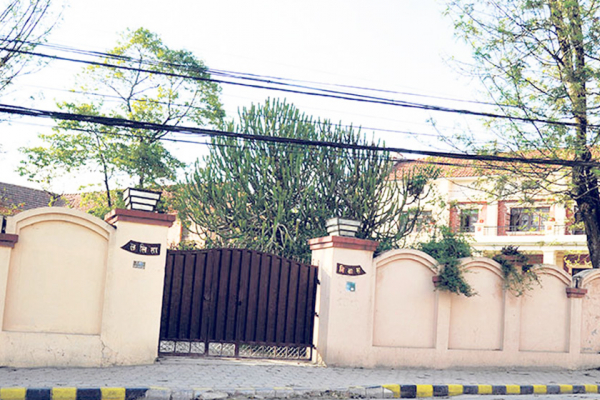
KATHMANDU, July 2: The Lalita Niwas land grab case has taken a new turn as the police announce their intention to investigate the involvement of organized crime. Nepal's Central Investigation Bureau (CIB), which has issued arrest warrants against over 400 individuals, has expressed its determination to uncover any organized crime activity related to the case.
If granted permission to investigate organized crime, the CIB will have the authority to detain and interrogate all those who have been arrested, as well as those who are yet to be apprehended, for a period of 60 days. Should the investigation under the Organized Crime Act reveal that the accused individuals have committed organized crime in relation to the Lalita Niwas land grab case, cases other than forgery will be filed.
The police's focus on organized crime intensified following the statements provided by Min Bahadur Gurung, Gopal Karki, and Dharma Prasad Gautam on Friday. CIB chief AIG Kiran Bajracharya has confirmed that discussions are underway with government lawyers regarding the matter. AIG Bajracharya said, "Given the nature of the crime, it appears that numerous individuals collaborated in an organized manner to carry out fraudulent activities. Therefore, we are working closely with the public prosecutor to establish whether this can be classified as an organized crime."
Under the provisions of the Organized Crime Act, those found guilty of organized crime may face imprisonment for up to five years or a fine of up to Rs 500,000. Since organized crime involves multiple interconnected criminal activities, the police believe that the Lalita Niwas land case falls under the purview of the Organized Crime Act. The severity of the punishment will be determined based on the level of involvement of each individual implicated.
In cases of organized crime, the police have the authority to detain the accused for a maximum of 60 days to gather evidence, whereas the maximum detention period for other offenses is 25 days. AIG Bajracharya commented, "It appears that leaders, employees, businessmen, and middlemen colluded in the Baluwatar land case, committing crimes collectively."
With the connivance of leaders, high-ranking employees and the land mafia, 143 plots of government land in Baluwatar were registered in the name of individuals.
Prior to the arrest of the accused individuals in the Lalita Niwas land grab case, Inspector General of Police (IGP) Basanta Kunwar paid a visit to Prime Minister Pushpa Kamal Dahal's residence, where he held a meeting with the Prime Minister. The purpose of the meeting was to consult with the Prime Minister before apprehending Min Bahadur Gurung, the owner of Bhat-Bhateni supermarket, former Election Commissioner Sudhir Shah, and other individuals accused in the forgery case.
Both businessman Gurung and Shah have close affiliations with the Maoists. Shah assumed the position of Election Commissioner through the Maoist Center's quota. "There were continuous discussions with the Prime Minister on Sunday and Monday, leading up to Tuesday's arrest," revealed a source at the police headquarters. Following the registration of two cases against Min Bahadur Gurung, the Prime Minister and the IGP engaged in extensive deliberations regarding his arrest.
Gurung faces another court case related to his acquisition of government land. The police have urged for the confiscation of Gurung's land holdings and the recovery of Rs 392.7 million from him. Similarly, in a separate case where government land was registered under Gurung's name, the demand is to retrieve 112 million rupees. "However, since there is an ongoing corruption-related case in court, the decision to arrest him was made with the understanding that the case remains open for further investigation," added the source.
The Commission for the Investigation of Abuse of Authority (CIAA) has confirmed that the transferring of government land in the name of individuals began in the tenures of former prime ministers Madhav Kumar Nepal and Baburam Bhattarai. However, the CIAA stated that it lacked the jurisdiction to file a case against them due to the decision made through a Council of Ministers meeting. Despite this, CIB has expressed that it may summon the former prime ministers for statements, if necessary, based on the statements provided by other accused individuals.
The decisions taken by the Cabinet on April 10, 2010, and October 4, 2012, aimed to unlawfully legitimize the ownership of Lalita Niwas's government land by private individuals. However, the case was not registered as the authority determined that those decisions were beyond its jurisdiction. During that time, the CIAA suggested the drafting of a law to the Prime Minister and Council of Ministers Office, enabling them to review the illicit decisions made by the Council of Ministers.
The process of transferring 299 ropanis of government land belonging to Lalita Niwas to private individuals began in November 1991. Complaints regarding this matter have been filed with the CIAA since 2001. In response, the government led by KP Sharma Oli at the time formed a three-member investigation committee, headed by Sharda Prasad Trital, on May 28, 2018, to conduct an inquiry into the issue.
Mahendra Kumar Thapa served as a member, while Ganesh Acharya held the position of member secretary in the committee assigned to address the issue. The committee's findings were submitted to the government on December 14, 2019. Three months later, during a Council of Ministers meeting on March 11, 2020, it was decided to implement the committee's report. The Council of Ministers also instructed the Ministry of Land Management to present a proposal in the Cabinet meeting, aiming to reclaim the government land, which had been transferred to individuals, within a period of six months.
The land in question was originally purchased by Bhim Shamsher, who served as Prime Minister from 1986 BS to 1989 BS, and subsequently passed down to his descendants. According to Land Office records, Bhim Shamsher acquired the land in 1988 BS.
Initially, a portion of Lalita Niwas was given by Bhim Shamsher to his son, Hiranya Shamsher. Later, it was transferred from Hiranya Shamsher to his son, Suvarna Shamsher. On July 12, 1960, Suvarna Shamsher allocated 58 ropanis of land to his wife, Shwetprabha, and their three sons, Kanak, Kanchan, and Rukm Shamsher, at a rate of 57 ropanis. He retained ownership of the remaining 61 ropani 11 annas of land in his own name. The government is currently making efforts to reclaim this land after it was transferred to individuals.
You May Like This
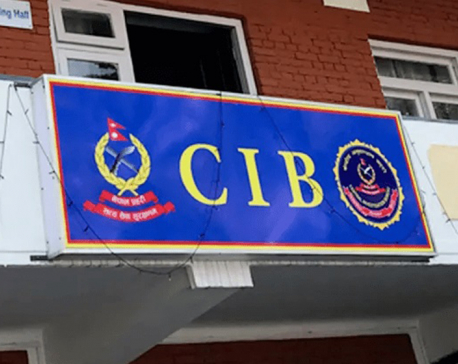
CIB takes statements from Gachhadar and Shah in connection with Lalita Niwas land-grab scam
KATHMANDU, Aug 22: The Central Investigation Bureau (CIB) of Nepal Police has taken a statement from former Deputy Prime Minister... Read More...
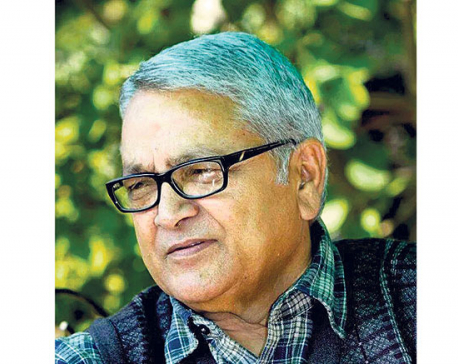
Panchayat-era minister says Lalita Niwas land owners were compensated 49 years ago
KATHMANDU, May 23: A Panchayat-era minister has said that the government had paid compensation to the owners of the Lalita... Read More...
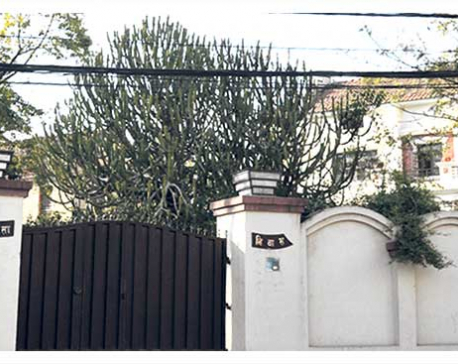
Land revenue officials, brokers go out of contact
KATHMANDU, April 16: Lalita Niwas Scam- Dozens of individuals including officials at the land revenue office and brokers have gone... Read More...

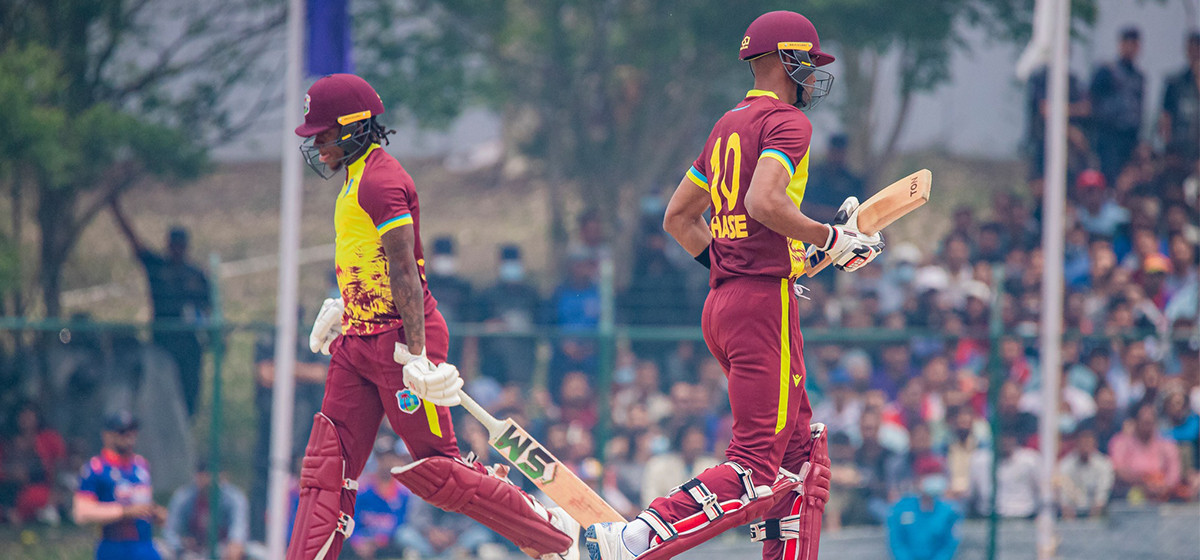


Just In
- UML candidate Bhandari maintains lead in Bajhang
- Nepal Investment Summit (live)
- Second T20 match: Nepal loses to West Indies ‘A’
- Bajhang by-polls update: 400 ballots counted so far
- Vote counting update: NC takes lead in Ilam-2
- People urged to take caution as Terai region including Lumbini province experiences sweltering heat
- School Principal arrested for allegedly facilitating fake examinees in Grade XII examination
- Stepdaughter arrested on charges of murdering her mother












Leave A Comment